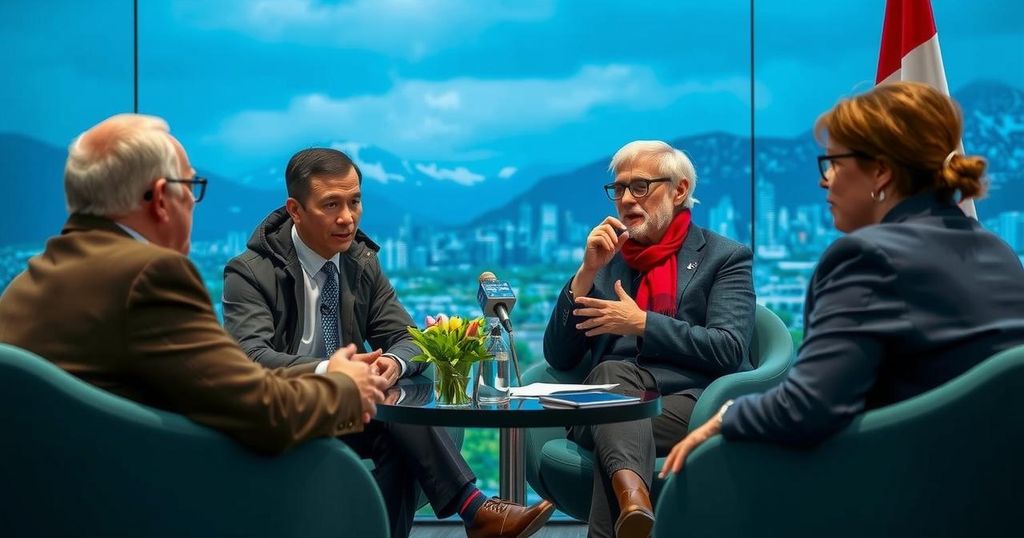Canada’s Commitment to Climate Action: Insights from Minister Steven Guilbeault at COP29

Steven Guilbeault, Canada’s Minister of Environment, discussed the outcomes of COP29, highlighting Canada’s $2 billion fund to aid vulnerable nations. He acknowledged the shortcomings of the agreement but expressed optimism for collective progress against climate change. Guilbeault urged youth involvement in climate advocacy, reflecting on the necessity of inter-nation cooperation and a cultural shift towards environmental stewardship.
In a recent interview, Steven Guilbeault, Canada’s Minister of Environment and Climate Change, discussed his experiences at COP29 held in Baku, Azerbaijan, and the pressing issue of climate change. Highlighting Canada’s commitment to global cooperation, he explained that nations have worked for over three decades to address climate change through the Conference of Parties (COP). He noted Canada’s announcement of a $2 billion international fund, GAIA, aimed at assisting vulnerable countries, particularly small island states, in confronting climate impacts.
Guilbeault acknowledged the shortcomings of the COP29 agreement, expressing concern over its inadequate measures to reduce pollution and support developing nations. He emphasized the importance of collaboration among countries, emphasizing that no single nation can tackle climate change alone.
Moreover, he responded to concerns from youth regarding the escalating impacts of climate change, stating that persistent efforts could mitigate the worst effects and heal the planet. Guilbeault aims to instill hope, urging younger generations not to despair and to continue advocating for climate action. He asserted that while Canada remains one of the major oil producers globally, it is transitioning away from subsidizing fossil fuels, committing instead to limit pollution in the oil and gas sector.
As he reiterated the necessity of a cultural shift towards environmental stewardship, Guilbeault also emphasized the importance of inclusivity in climate discussions, particularly regarding marginalized communities and indigenous peoples. He expressed optimism for the collective future, suggesting that while challenges are significant, with continued effort, improvements can be made. Guilbeault concluded by calling for youth engagement in climate advocacy, recognizing their essential role in driving change and shaping a sustainable future.
The dialogue occurred in light of the increasing urgency surrounding climate change as 2024 culminates as the hottest year recorded. COP29 serves as a pivotal platform for nations to negotiate international climate agreements and assess commitments made in previous conferences. As various environmental challenges intensify across the globe, especially in vulnerable regions, discussions surrounding financial aid for climate adaptation and mitigation have become more pronounced. Canadian Minister Steven Guilbeault’s perspective is particularly crucial as Canada is a significant player in the global oil industry, and the Canadian government faces scrutiny over its environmental policies and commitments amid calls for more aggressive climate action.
In conclusion, Minister Steven Guilbeault’s insights from COP29 reveal Canada’s commitment to climate action through international cooperation and financial initiatives aimed at assisting vulnerable nations. While he acknowledges the strengths and weaknesses of the conference outcomes, he promotes a balanced message of hope and urgency. Guilbeault’s advocacy for youth engagement reflects a vital understanding that collective efforts are essential to combat climate change effectively, while also underscoring the need for systemic change in resource management and environmental policies.
Original Source: www.cbc.ca






